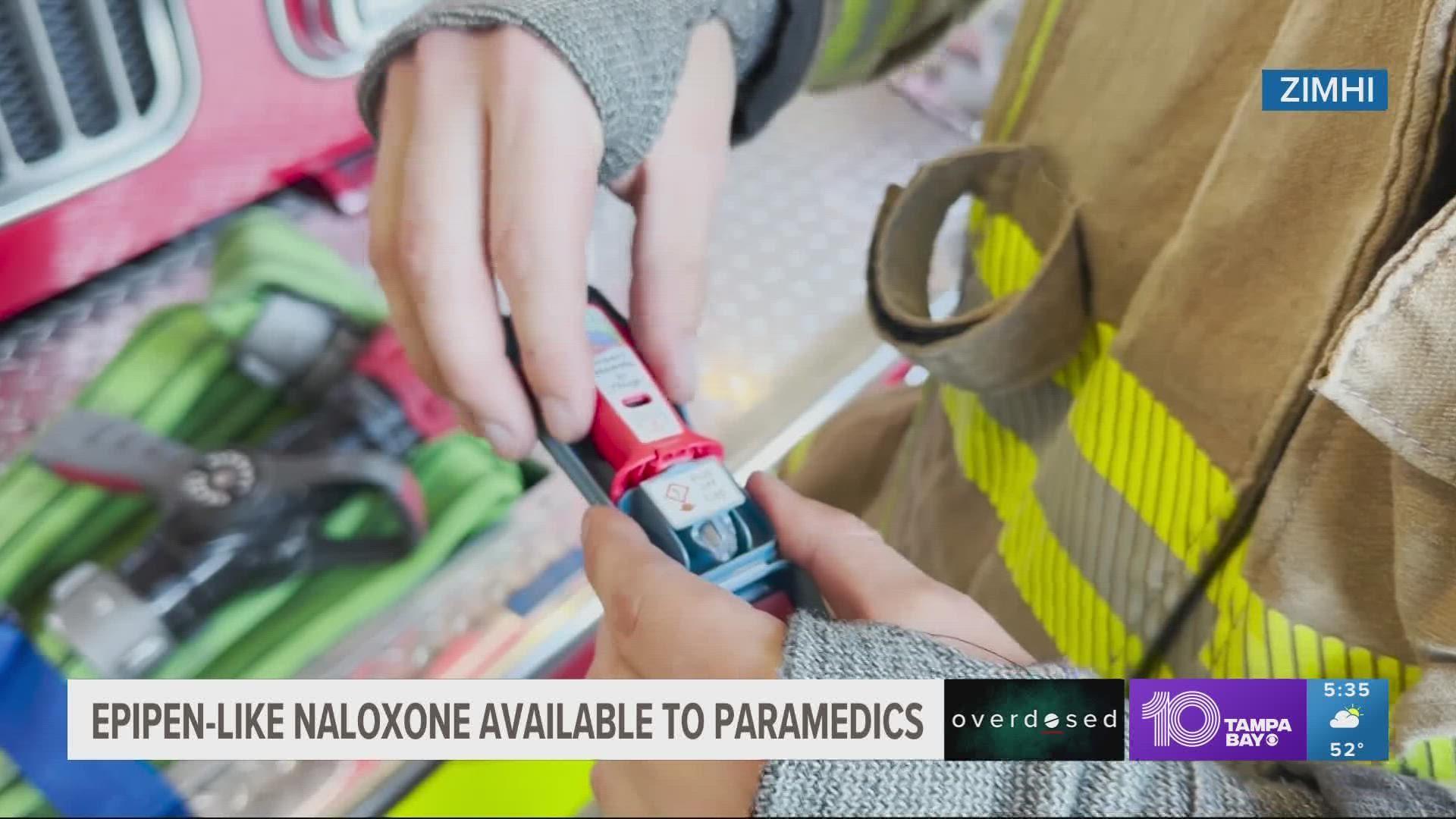ST. PETERSBURG, Fla. — When someone is overdosing, every second counts.
We’re talking about the difference between life and death, full recovery or brain damage. Now, Florida first responders will have access to a new tool to save lives.
Across the state, the Florida Department of Health has been rolling out a new program to help fight the opioid epidemic. It's called the Coordinated Opioid Recovery Network or CORE, a full-circle approach to providing care for those with addiction.
While health care providers are trying to get people the help they need, first responders are getting a new tool in their arsenal to respond to an overdose. It's a higher dose of naloxone called Zimhi. It works like an EpiPen.
Sometimes first responders can go through several rounds of Narcan. The nasal spray is a lower dose of the dose of naloxone as Zimhi. This higher dose could revive patients sooner.
“Our Narcan comes pre-packaged in four-milligram vials and it’s administered through the nose," Tampa Fire Rescue Division Chief Chris Shipp told 10 Tampa Bay. "I would say – and this would be a rough estimate – 50-60 percent [of the time], 4 milligrams is plenty. But there are times when we may have to use more of it.”
“Since I've started to use them at home with a total amount of eight overdoses, I've only had a hit on one time with that. And they've started to become unconscious, oriented within 15 to 30 seconds,” Primary Trauma Therapist Chris Chodkowski said. “With Narcan, it's the same ingredient that's in Zimhi. That's naloxone, it's just a different milligram. So, with the Narcan, they're just going to have to use multiple doses. Zimhi — one dose and it's good."
Experts recommend keeping Narcan close by, especially if you live or know someone who has struggled with addiction. Here's where you can find resources.
The Florida Department of Health is not recommending one product over another, but they are making both available through the Helping Emergency Responders Obtain Support or HEROS. That means they can order it for free from the state.
“The CDC labels addiction as a disease. There is no cure for your addiction. However, with trauma and understanding that there is a cure for trauma, we might have a better outcome with the addiction rates," Chodkowski said.
You can see 10 Tampa Bay’s special series “Overdosed,” streaming now on YouTube. This series explores possible solutions like drug testing strips, safe places to use, and tougher prosecution for those who deal deadly drugs.
Six people from across the Tampa Bay area shared how fentanyl has impacted their lives in our roundtable, Faces of Fentanyl.
We also have a digital exclusive interview with the DEA in Tampa streaming now on YouTube and 10 Tampa Bay+.

